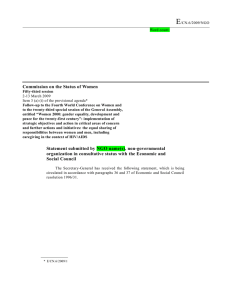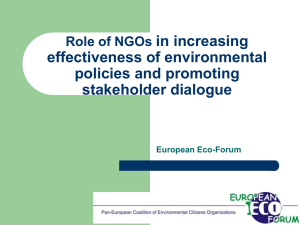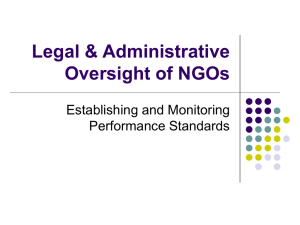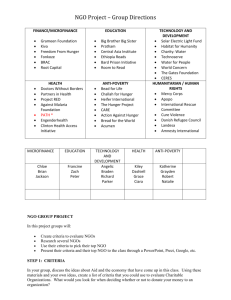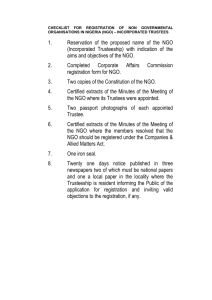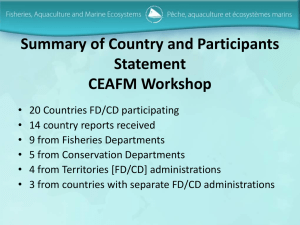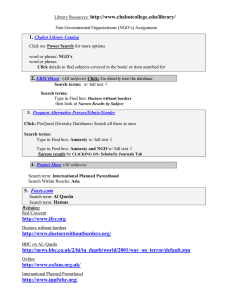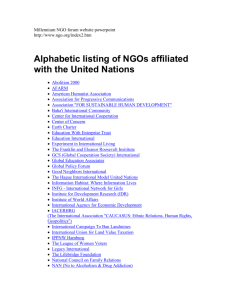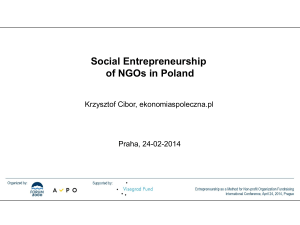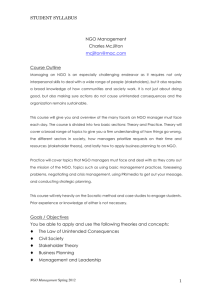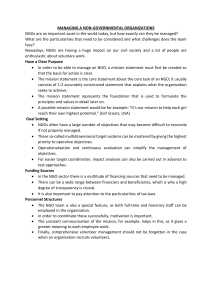10 Steps to a Successful NGO
advertisement
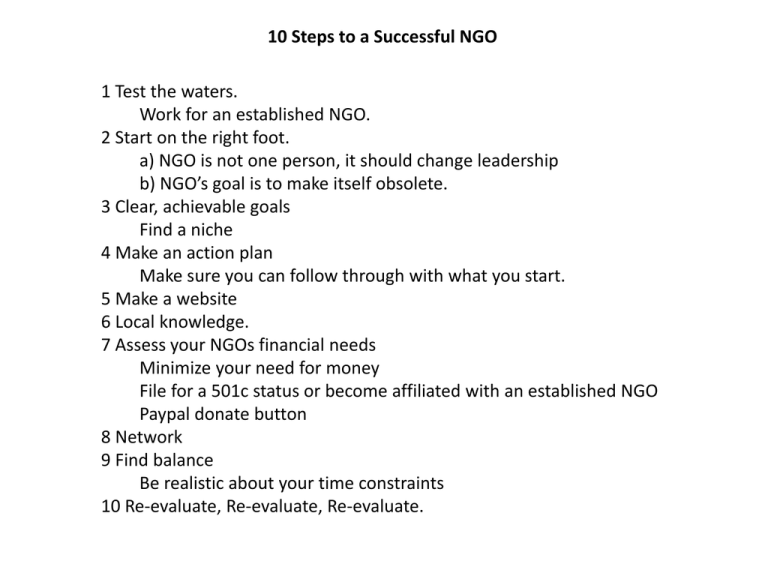
10 Steps to a Successful NGO 1 Test the waters. Work for an established NGO. 2 Start on the right foot. a) NGO is not one person, it should change leadership b) NGO’s goal is to make itself obsolete. 3 Clear, achievable goals Find a niche 4 Make an action plan Make sure you can follow through with what you start. 5 Make a website 6 Local knowledge. 7 Assess your NGOs financial needs Minimize your need for money File for a 501c status or become affiliated with an established NGO Paypal donate button 8 Network 9 Find balance Be realistic about your time constraints 10 Re-evaluate, Re-evaluate, Re-evaluate. How to Build a Good Small NGO There are two kinds of NGOs A) Bottom Up Locally organized for themselves Beneficiaries are treated well B) People with status adopt a cause There is an “Us” and a “Them” Growth of an NGO A) Egalitarian Period A small group of people with everyone being equal B) A large group with specialization of tasks Has an office, computers, legal registraiton, board of directors Everyone is on salary. Workers; Beneficaries; the board; small groups who do the work. Board makes sure the organization stays on track. Board represents or are the beneficiaries. 1 Clear about your goals, values and ethos, field. 2 Build a relationship with your beneficiary group. 3 Adopt a single objective, because then it is easier to achieve it. 4. Operate in a country with a strong civil society. This means that there are enough NGOs and Associations to form a mass big enough to be listened to, a mass existing between government and people. 5 Build up your professional capacity and build partnerships with other groups. A good example of where you need to be professional is in your handling of money. If you do the job properly you will also show yourself to be transparent -anyone can see how you are spending the money – and accountable – if money goes missing then it will be noticed and someone will have to take the blame. 6 NGO builds structures and ways of acting which are transparent, accountable and democratic. 7. Develop a clear and sensible policy on gender. If no thought is given, then women will be under-represented in the group that makes decisions, and the needs of both sexes among the beneficiaries will not be thought through. NGO Regulation
